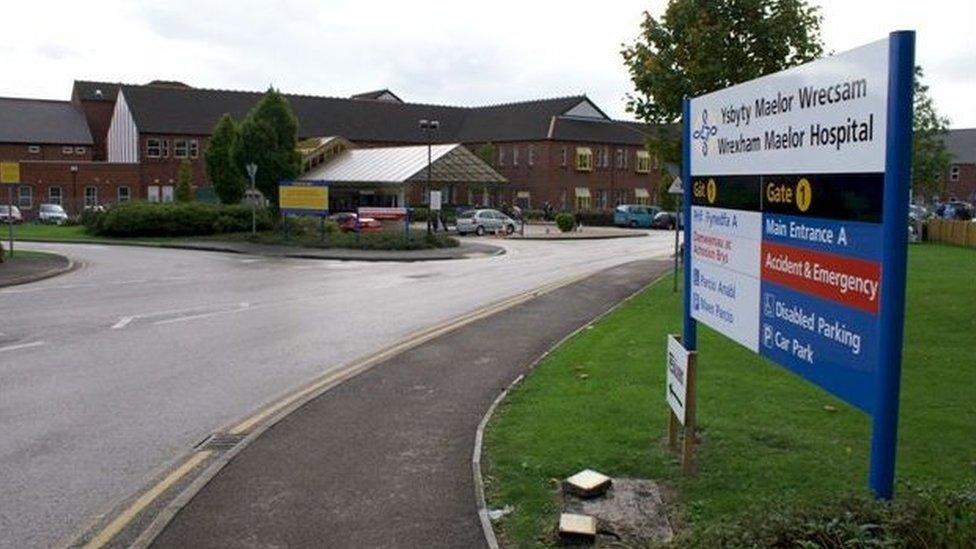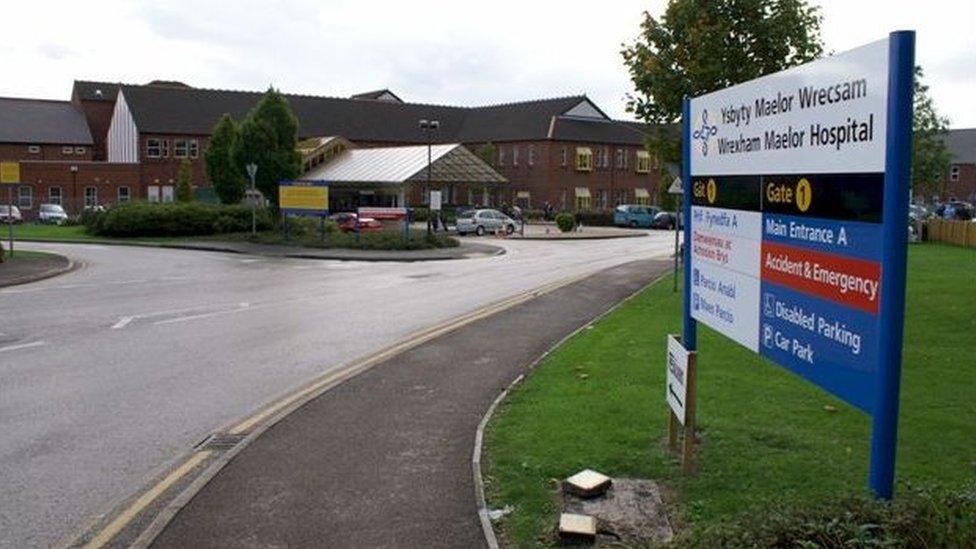Wrexham Maelor Hospital: Coroner's doctor alert warning
- Published

A coroner has warned more deaths could occur at the Maelor Hospital if they continue to rely on their system for alerting doctors
A coroner has warned more deaths could occur at Wrexham Maelor Hospital if it continues to rely on its system for alerting doctors.
Jennifer Trigger, of Llanarmon-yn-Ial, Denbighshire, died in January 2020.
John Gittins, senior coroner for north Wales east and central, concluded Ms Trigger, 71, died of natural causes but contributed to by neglect.
Mr Gittins issued a Prevention of Future Deaths report to Betsi Cadwaladr University Health Board.
Ms Trigger, a former solicitor to the then North Wales Police Authority, was taken ill while out with friends in Ruthin.
It was established that she suffered an acute stroke and, as she was already on the anti-coagulant warfarin for a pre-existing condition, she was appropriately prescribed another treatment, beriplex, to reduce the risk of further bleeding in her brain.
The beriplex was prescribed at 20.45 GMT, but the inquest heard that it was not administered until 07.35 GMT the following day, despite it being "time critical".
By then there had been an extension of the bleed and her condition had deteriorated significantly. Despite further treatment in intensive care she died later that day.
In his report, Mr Gittins said he was concerned that there had been a misunderstanding when a ward nurse "bleeped" a junior doctor regarding the administration of the beriplex.
"This resulted in a delay in the doctor attending as she did not prioritise a task which was time critical, and the subsequent delays resulted in an unrecoverable deterioration in the patient's condition," he said.
Mr Gittins said he heard evidence that the "bleep" system did not enable information to be conveyed electronically, and in turn, created a risk of misunderstanding as to what was needed.
He said this affected prioritising tasks and potential delays which "could be catastrophic in terms of patient safety".
"Evidence was also given that alternative systems existed that had the potential for mitigating or eliminating such risk by way of the electronic transfer of information and requests by doctors," he added.
The health board has until 26 April to respond to the coroner's concerns, either explaining what steps have been taken to address the issues or spelling out why it is felt that nothing need be done.
- Published26 January 2024

- Published16 August 2023

- Published22 January 2023
